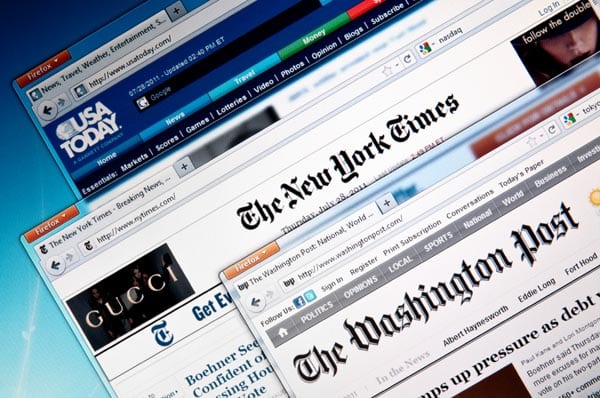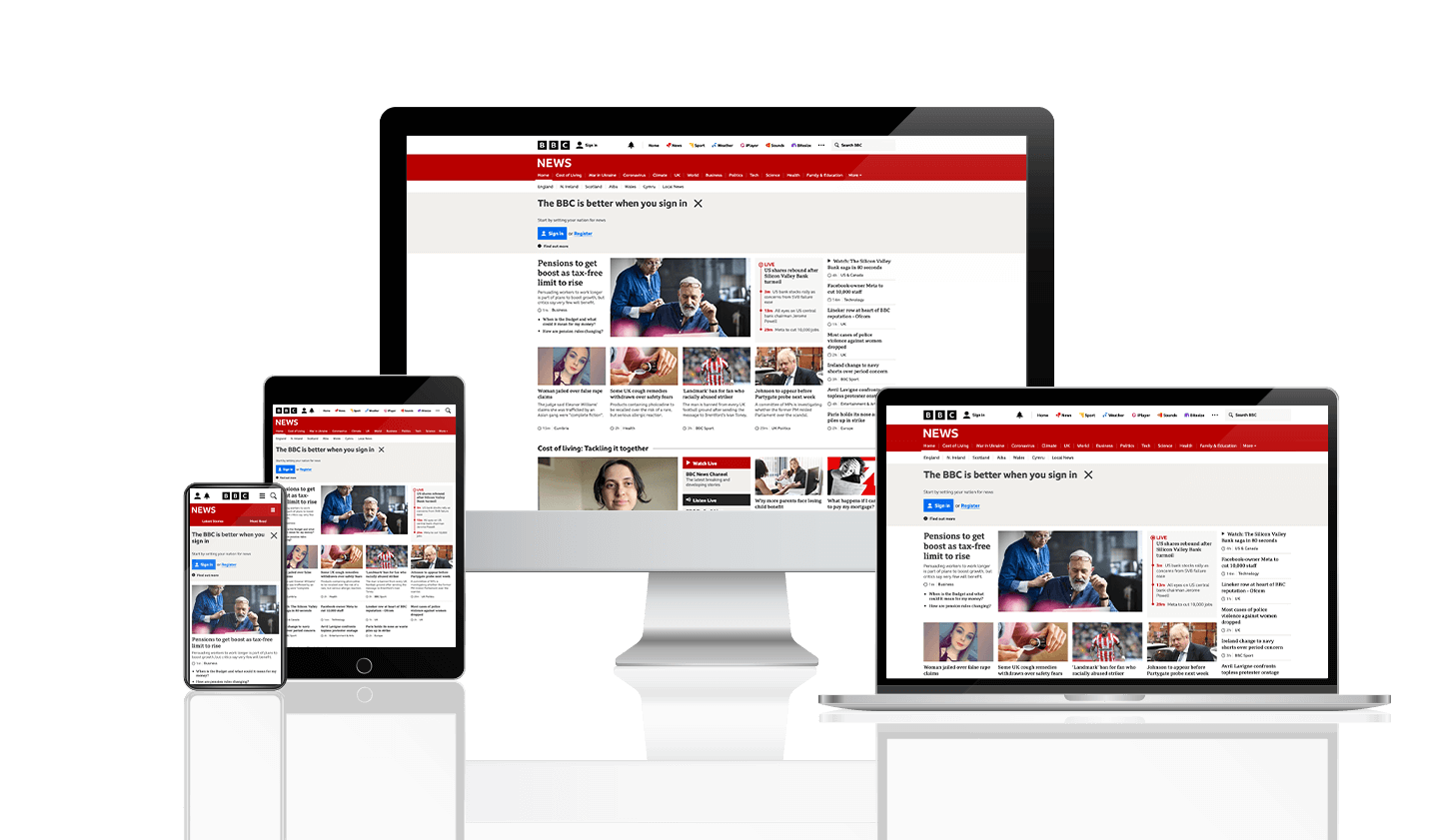The Significance of Fact-Checking in the World of News Online
The prevalence of misinformation in today's online news landscape has reached startling levels. Fact-checking organizations play an important function in combating this pattern. They verify cases and enhance the trustworthiness of journalism. Nonetheless, the effectiveness of these companies often rests on their methodologies and public perception. As audiences browse this intricate setting, the effects of their searchings for might shape the future of news consumption and depend on. What does this mean for the integrity of information progressing?

The Rise of Misinformation in the Digital Age
How has the advent of electronic innovation contributed to the spread of false information? The rapid development of the internet and social media sites platforms has actually assisted in the dissemination of details at an unmatched pace. Individuals can share write-ups, videos, and opinions with a simple click, usually without confirming the material's precision. Algorithms prioritize spectacular or emotionally billed material, bring about an expansion of deceptive narratives that capture focus.
Furthermore, the anonymity managed by digital systems allows people to spread out incorrect information without responsibility (stnews.live). False information thrives in echo chambers, where customers are exposed mainly to point of views that reinforce their beliefs, even more lodging fallacies. The saturation of details can bewilder users, making it challenging to determine credible resources from unstable ones. Consequently, misinformation has ended up being a pervasive problem in the electronic landscape, influencing popular opinion and rely on legitimate news sources
The Role of Fact-Checking Organizations
Fact-checking organizations play a necessary duty in enhancing the integrity of journalism by validating claims made in report. Their efforts are vital in combating misinformation, guaranteeing that accurate details dominates in the digital landscape. By holding media outlets responsible, these organizations contribute considerably to notified public discussion.
Enhancing Integrity in Journalism
While false information multiplies in the digital age, fact-checking organizations play a crucial function in boosting the credibility of journalism. These companies carefully confirm insurance claims made in news posts, public declarations, and social networks blog posts, ensuring that information disseminated to the general public is exact and reliable. By giving independent analyses, they act as an important source for reporters, assisting them maintain high criteria of integrity. Furthermore, their efforts promote openness in media, cultivating public depend on. As target markets become significantly critical, the existence of reliable fact-checking entities can distinguish reliable news resources from those that may spread falsehoods. Ultimately, the dedication of fact-checking organizations to support truthfulness is important for the health and wellness of democratic discourse.
Combating False Information Successfully
As misinformation remains to spread out swiftly across digital platforms, the duty of fact-checking companies comes to be increasingly vital in the fight for precise details. These companies work as watchdogs, looking at claims made by public numbers and media electrical outlets to guarantee liability. By using strenuous research study methods and specialist analysis, they confirm truths and clarify misleading narratives. Their searchings for are shared with various channels, enlightening the public and fostering crucial thinking. In addition, collaborations with social networks platforms enhance their reach, allowing for timely flagging of false information. As electronic proficiency expands, the influence of fact-checking organizations is vital in encouraging target markets to recognize fact from fraud, eventually adding to a more educated culture.
Exactly How Misinformation Affects Public Perception
False information substantially threatens trust fund in media, leading audiences to doubt the reputation of news resources. Consequently, individuals typically are attracted towards outlets that reinforce their present ideas, contributing to the polarization of viewpoints. This dynamic develops a fragmented details landscape, where shared comprehending ends up being significantly hard to accomplish.
Depend on in Media

Trust fund in media has actually become increasingly breakable in the electronic age, where the rapid spread of incorrect details can alter public perception. As false information multiplies across social media sites and online platforms, target markets usually discover it testing to determine reputable sources from unstable ones. This uncertainty fosters hesitation, leading several individuals to question the intentions behind news coverage. Count on in developed media electrical outlets has actually decreased, as customers increasingly transform to different sources that might do not have rigorous editorial criteria. This erosion of trust not only impacts specific beliefs but likewise threatens the collective ability to involve in educated conversations. Ultimately, the stability of journalism goes to risk, highlighting the important requirement for efficient fact-checking to recover self-confidence in the media landscape.

Polarization of Viewpoints
The boosting suspicion toward conventional media has contributed to a growing polarization of point of views amongst the general public. Misinformation, usually disseminated with social media sites and online systems, plays a considerable role in forming unique ideological divides. Individuals frequently seek information that aligns with their pre-existing beliefs, strengthening their point of views while rejecting opposing point of views. This echo chamber effect escalates departments, bring about a fragmented public discussion where consensus becomes progressively elusive. Additionally, sensationalized narratives flourish in this setting, further skewing public perception and cultivating question in credible resources. As polarization intensifies, the requirement for reliable fact-checking ends up being critical to bridge spaces and promote educated discussions, ultimately making certain an extra natural society efficient in navigating intricate problems.
Techniques for Effective Fact-Checking
Effective fact-checking depends on a methodical approach that consists of thorough research study, verification of resources, and crucial evaluation of insurance claims. A foundational technique is cross-referencing details from numerous reliable sources to confirm its accuracy. Fact-checkers commonly utilize specialized databases and archives to map the origin of particular declarations, guaranteeing that the reported info straightens with documented proof.
One more essential approach involves scrutinizing the context in which insurance claims exist. Misleading details can develop from out-of-context quotes or selective data usage. By analyzing the broader story, fact-checkers can identify prospective predispositions or misinterpretations.
In addition, engaging with experts in appropriate fields can give quality and insight that enhances the fact-checking process. This cooperation can reveal subtleties that laypeople might overlook - stnews.live. Ultimately, a regimented strategy incorporating these strategies fosters a much more educated public, enhancing the dependability of info distributed in the digital age
The Influence of Social Media on News Usage
Just how internet has social networks changed the means people eat news? The introduction of systems like Facebook, Twitter, and Instagram has significantly modified news usage patterns. News is currently distributed rapidly, enabling users to access real-time updates and involve with material through likes, shares, and comments. This immediacy has actually cultivated a choice for bite-sized info, commonly at the expense of thorough analysis.
In addition, social media allows individualized news feeds, where formulas curate web content based on customer preferences, producing echo chambers that might restrict direct exposure to varied point of views. The function of conventional news electrical outlets has decreased as people significantly depend on peer recommendations and trending topics. The reputation of details is typically jeopardized, as sensationalism can outweigh accurate reporting. Overall, social networks has actually reshaped news usage, emphasizing speed and customization while challenging the requirements of journalistic integrity.
Equipping Audiences to Recognize Trusted Resources

Additionally, analyzing the authorship and organizational history of news posts can disclose potential predispositions. Cross-referencing info throughout multiple reputable outlets additionally improves the verification process. Making use of digital tools, such as internet browser expansions that rank the integrity of web sites, can also aid in determining credible details. By proactively involving with these sources and growing a crucial mindset, target markets can better equip themselves to recognize trusted news resources, ultimately fostering a more informed culture in the middle of the intricacies these days's media setting.
The Future of Journalism and Fact-Checking
As the media landscape evolves, the future of journalism and fact-checking encounters both tests and opportunities. The increase of digital platforms has democratized details dissemination, permitting diverse voices to arise. Nevertheless, this has also brought about the expansion of false information, requiring durable fact-checking systems. Reporters will significantly rely upon modern technology, consisting of AI tools, to confirm facts rapidly and successfully.
Collaboration in between this content news companies and fact-checking entities is anticipated to enhance trustworthiness and openness. Additionally, audience interaction will play an important function, as notified viewers end up being considerable partners in recognizing credible material.
The demand for responsibility and precision is most likely to expand, pressing reporters to copyright high standards in their coverage. Inevitably, the future of journalism might depend upon its capability to adjust to technical advancements while preserving journalistic honesty, guaranteeing that fact-checking remains a keystone of trustworthy news.
Often Asked Questions
How Can I Report False Information I Encounter Online?
To report look at here misinformation come across online, individuals can make use of platform-specific reporting devices, give clear evidence, and share the details with fact-checking organizations. Engaging with area discussions can likewise aid elevate understanding regarding the false information.
What Prevail Indicators of Misinformation in News Articles?
Common indicators of false information in newspaper article consist of thrilling headlines, lack of legitimate sources, psychological language, inconsistent facts, and lack of writer qualifications. Viewers ought to seriously examine web content for these indications to recognize accuracy.
Exactly How Do Fact-Checkers Verify Resources?
Fact-checkers validate sources by cross-referencing information with legitimate data sources, seeking advice from experts, and analyzing the original context of cases. They likewise assess the dependability of the sources, ensuring precise and reliable details for public usage.
What Lawsuits Can Be Taken Against False information?
Legal activities against false information might consist of libel lawsuits, cease-and-desist orders, and regulative charges. Targets can look for remedy via civil courts, while some jurisdictions enforce penalties or permissions on systems disseminating incorrect info.
Are There Apps for Fact-Checking News On-The-Go?
Numerous applications exist for fact-checking news on-the-go, consisting of Snopes, FactCheck.org, and PolitiFact. These applications assist customers confirm claims rapidly, promoting informed decision-making and cultivating a much more critical technique to consuming news in real-time.